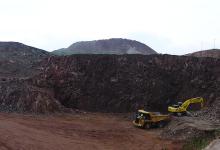In its mid-2012 update of global cement volumes, the
“In what has rapidly become an industry benchmark, our latest mid-2012 forecast shows an increased bifurcation in growths across regions. We see prolonged challenges in the developed world, led by more dramatic than anticipated declines in Western Europe. We also lower our view on the Eastern Europe-CIS, Middle East, Latin America and China regions, partially on spill-over effects.
“This said, we see hope in Africa and, encouragingly, in North America. No doubt we are setting the stage for what we expect to be a global shift in strategic dynamics and emerging corporate champions,” says Robert Madeira, CW group managing director and head of research.
The latest benchmark Global Cement Volume Forecast Report (GCVFR) by the CW Group, a leading global cement industry advisory and analytics company, shows global cement consumption, ex-China, expanding at 3.7% in 2012 to reach 1.561 billion tonnes. The increase is a decline from the 4% consumption volume growth in 2011 when worldwide cement demand ex-China reached 1.494 billion tonnes.
“The CW Analytics team derives the latest forecast using a combination of country-level, bottom-up statistical, qualitative and external perspectives,” explained Claudia Stefanoiu, CW group senior analyst and lead on the GCVFR initiative.
She added: “In our mid-year 2012 update, we have also further refined our data baseline models to provide better views on capacity and historical data as well as provide a review of recent market dynamics for the key forecast countries. Many of the data sources that are widely used by the industry were simply of insufficient quality or too erroneous to be relied on. As such, we will continuously maintain and work to refine our in-house data views so that our clients can expect to continue receiving improved baselines as we refine our models and inputs.”
The report says that on a regional basis, economic forces in Western Europe turned from headwinds into gale force. Cement volumes, even though they looked in late 2011 to stabilise in some core markets, have frayed, with volumes turning negative and plunging in markets across Southern Europe.
In the region, only parts of Northern Europe have shown a surprising resilience, with Norway showing exceptionally strong growth. We do not expect this pattern to evolve materially in the near term. To make matters worse, the deterioration is spreading: Eastern Europe and CIS are starting to struggle in many places, albeit with pockets of robust growth, such as Russia and some ex-Soviet states.
“Latin America largely remains robust, offset by weakness in Mexico and the Caribbean. Overall, we see the region growing at a slightly slower pace than in our 1H2012 update. Africa remains an exciting cement market, particularly the Sub-Saharan region, and we are revising our forecast upwards by over 4% for 2012, driven by strength across many of the frontier markets, notably in Nigeria,” says the report.
“Asia ex-China also remains strong, and we expect an uptick in volumes compared to our view in 1H2012, accelerating into 2013 and 2014. In particular, several countries in Maritime South-East Asia are showing strong recoveries, led by the Philippines and Indonesia with 2012 year-on-year growth in the double digits.
“South Asia has faced a bit of a bumpy ride, but we remain positive on the outlook for India as well as Pakistan.
“China continues to perform, and some of the worst fears of falling off the cliff seem to have abated. We have lowered our outlook somewhat for the country but believe growth is likely to continue in the near-to-medium term.
On the capacity side, we see only limited countries being able to improve utilisation rates in the near-to-medium term. Though the operating environment in some countries will improve relative to their volume troughs, the set of countries that will operate flat out, such as Algeria and Saudi Arabia, is small.
“Overall, although we expect slow growth to continue at a global level, the outlook is cloudier than ever, leaving room for a higher degree of uncertainty than usual in our forecast. Competing macroeconomic forces, led by a persistent drag from Europe alongside robust (albeit fraying at the margins) growth in emerging markets, create a tug-of-war between cement market fundamentals and global economic linkages.
“The CW Group recognises the challenges ahead, and we advise our clients to more than usual keep revisiting market assumptions and outlook based on changing conditions. With the current market, the biggest error is not in revising forecasts but rather in relying on static models.”






